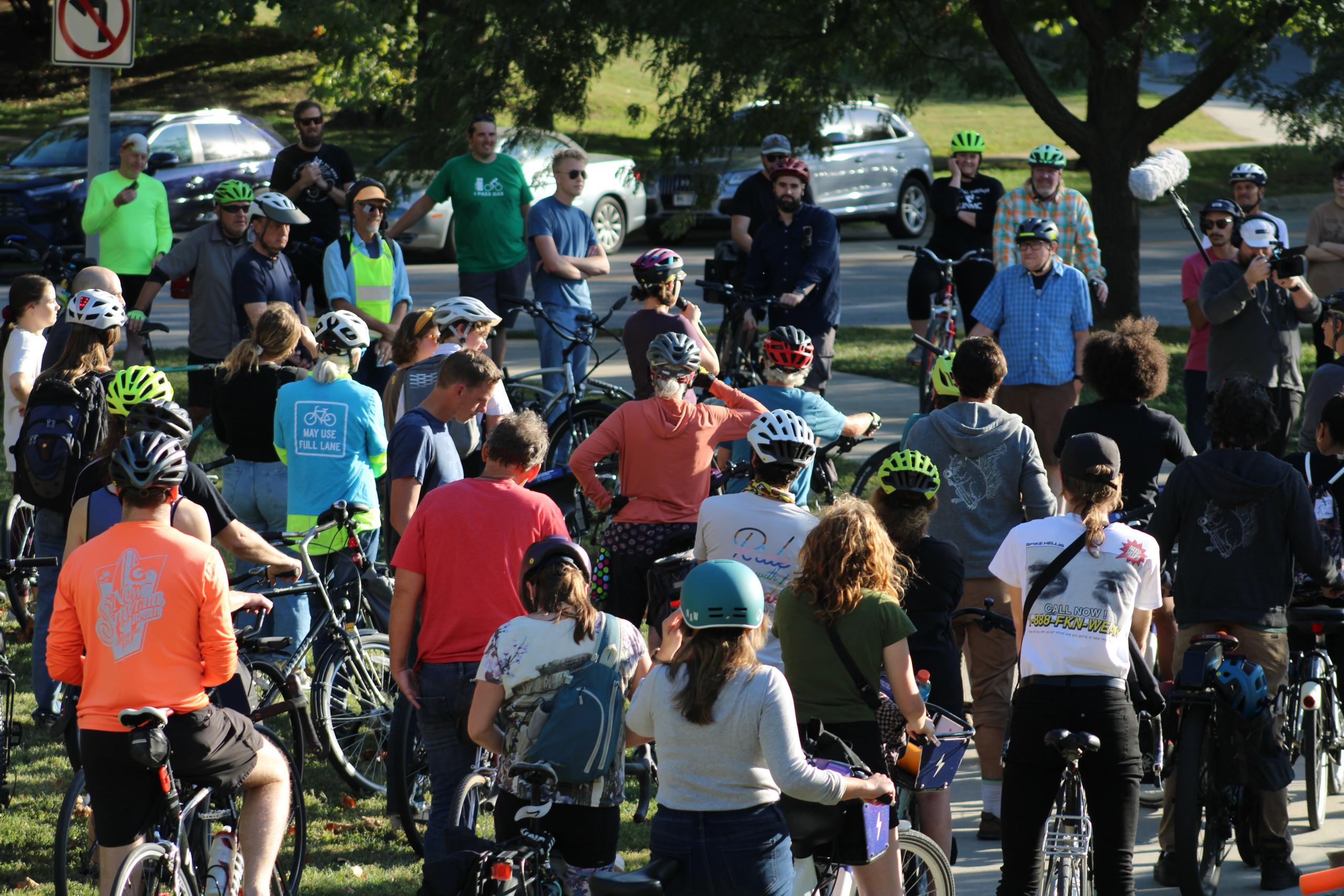ModeShift Omaha was born during the most-recent Transportation Master Plan (TMP) process. We brought together concerned members of the community when the need to encourage citizens engagement in the process became clear. In order to generate support the broader transportation options included in discussions and drafts of the plan, we knew that the community needed to be an active participant. When we heard earlier this summer that the final version of the TMP was being revised by the City, after it had been approved by the Planning Board (on May 2), it raised concerns that more than a year of citizen participation, guidance, study and activism might be ignored. We appreciate that the City has posted the old and new versions of the plan so that we can all view the changes. Both versions are available from the city’s website for the TMP.
The changes that raise the most concern are the areas where good ideas and pretty pictures become actionable plans and accountable metrics. After the plan passed the Planning Board the first time in May, agencies within the City, without public consultation, altered the two elements we felt were key to the future of transportation policy in Omaha. First, the list of 300 projects ranked by their impact on the community were removed and second, the metrics used to rank those projects were degraded to a draft state with the promise of finalized metrics once the plan was passed. The metrics and projects transformed the plan from concept to concrete and gave the public a hand-hold for accountability. If the plan does not say explicitly what changes will be made, what future will be realized, then holding the city accountable for “the spirit” of the plan is nearly impossible. In essence, it does not matter whether the TMP is passed by the City Council because we still do not know what it will contain in terms of accountable, actionable metrics and directives. We do not want to see yet another well-conceived and well-supported plan for the city end up on a dusty shelf in the Planning office.
A glimmer of hope comes from the recent formation of a citizens advisory group that will assist city staff with finalizing project metrics and re-populating the project priorities according to revised metrics. As with the stakeholders committee that assisted with the TMP draft, this group will hopefully provide input to city staff from a citizen perspective. Nonetheless, the process raises concerns because the development of the metrics and project priorities will follow the City Council vote on the TMP.
The other edits cannot be characterized as universally positive or detrimental. Some dealt with the practicalities of facts on the ground having changed over the course of the nearly two-year process. If part of the point of the transportation plan is to provide a snapshot of the starting place, those revisions are necessary and appropriate.
In the interest of providing a snapshot of the City, the original plan also provided crash data for problem intersections. After all, if we want a safer transportation system, it may be best to focus first on the most dangerous places. In the revised document, crash data and maps that illustrate problem intersections were removed by the City. The rationale, according to notes on the revisions, was that the “information can be found in other public documents or requested.” How obscuring historical data makes for better decision making or comprehension is not demonstrated.
The current final revision still retains a spirit and vision for Omaha of a transportation system that aspires to accommodate everyone, and that makes choices in transportation easier. We wholeheartedly support this aspiration. However, the lack of finalized metrics and accountable priorities make the draft unaccountable. Until we know the metrics and the project priorities, we cannot know whether this process has been a success or a failure. The current draft requires the people to trust that an already flawed process will produce a desirable outcome. While the TMP says a lot of good things about Omaha and our potential, the platitudes are not an implementable plan.
So for now, ModeShift Omaha is optimistically neutral that the current form of the TMP, to be presented to the City Council for approval on August 21, will be a contributing element to the continued progress of Omaha toward a transportation system that is more inclusive and accommodating to all Omahans.

